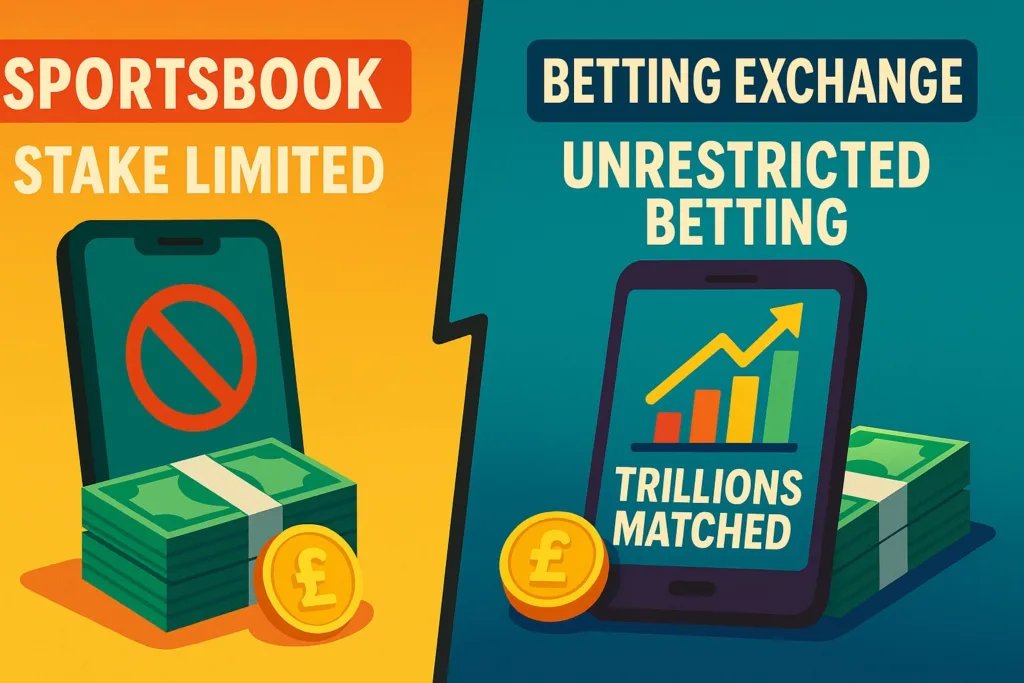
OFFICIAL: Betting Accounts Are Restricted
UK Gambling Commission Reveals 4 % of Betting Accounts Were Restricted in 2024 – Here’s What It Means for Punters and Bookies.
Why has this story blown up?
The UK Gambling Commission (UKGC) has published headline data showing that 643,779 out of 14.9 million active online betting accounts – 4.31 % – were hit with “commercial restrictions” last year(Gambling Commission). That phrase covers everything from draconian stake limits to outright account closures. For anyone who bets seriously, these numbers are impossible to ignore.
Key findings at a glance
- Stake‑factor reductions (limits): applied to 2.68 % of all active accounts and 62.17 % of restricted accounts.
- Account closures for commercial reasons: 2.23 % of active accounts (51.69 % of restricted accounts).
- Zero‑stake bans (“0 % limits”): 0.83 % of active accounts, effectively locking customers out.
- Market‑specific limits (e.g. only horseracing): just 0.25 % of active accounts.
- Profitability matters: 46.78 % of restricted customers were lifetime winners, versus 25.42 % of the overall customer base(Gambling Commission).
What exactly is a stake‑factor restriction?
Bookmakers can throttle the maximum you’re allowed to bet by assigning a percentage of the “normal” limit. The UKGC’s breakdown shows a stark tilt towards aggressive reductions:
- 36.22 % of stake‑factored accounts were allowed just 1–9 % of the normal max.
- 22.41 % were cut to below 1 % – a de‑facto ban.
- Only 6.04 % sat in the lenient 90–99 % band(Gambling Commission).
In short, if you’re flagged, you’ll probably feel it.
Are winning bettors being singled out?
Yes – but that’s hardly news. Almost half of restricted accounts were lifetime profitable, nearly double the baseline.
As the UKGC drily notes, “being a successful bettor is not a protected characteristic”, so operators are free to manage their risk exposure(Gambling Commission).
Why operators impose restrictions
- Liability management: big prices + sharp customers = uncomfortable risk.
- Arbitrage and multi‑accounting: limits deter traders who hammer price inefficiencies.
- Bonus abuse: promos lose money if not policed.
Remember, restrictions are commercial, not regulatory. The UKGC has reiterated it will not tell firms how to price risk – but it does want clearer disclosure to customers.
The unintended consequences
Soft books are easy to exploit for semi-savvy punters. As a result, lots of people get their accounts restricted in this category. This leads to secondary behaviour.
- Shadow betting: punters open accounts in friends’ names (“multi‑accounting”), undermining affordability and AML checks.
- Reputational fallout: customers complain loudly on social media; trust erodes.
What this means for serious punters
- Expect limits, plan around them. Factor multiple regulated books into your staking plan.
- Keep records. A clear profit‑and‑loss trail helps argue your case if you feel unfairly treated.
- Stay compliant. Use your own identity; multi‑accounting is a fast route to a lifetime ban.
- Diversify. Exchanges and spread‑betting firms often tolerate higher‑skilled action because commission, not margin, is their primary revenue.
Betting exchanges unlock almost unlimited staking power
Many people complain about how unfair restrictions are, but the simple fact is that for 25 years, it has been perfectly possible to stake almost unlimited amounts without being restricted. You just need to use a betting exchange.
The key difference is who wears the risk. A traditional sportsbook sets the odds and books the liability, so the moment you look dangerous they slash your limit or close the account. An exchange is merely the conduit: it earns a small commission on net winnings and lets the market itself decide what price will clear.
That peer‑to‑peer model means no stake factoring, no arbitrary closures and the freedom to both back and lay, hedge out in‑play and treat sport like a live order book. In short, exchanges give serious bettors the depth, transparency and scalability that a fixed‑odds book simply can’t – and that’s why professionals gravitate there.
The regulatory road ahead
The Commission will “engage further with industry” to dig into why policies differ so widely and whether communication standards need tightening. Don’t expect stake‑factor caps or a ban on closures – but do anticipate stronger consumer‑information rules.
Final thought
For bettors, this report confirms what many already knew: if you consistently beat the book, you’ll eventually be curtailed.
However, there is an answer to this: use a betting exchange! Many
I and many other Bet Angel users have bet incredible sums over the years without ever fearing closure. Individual totals are now into the billions without a whiff of a problem. Meanwhile, people taking soft prices with soft books, get closed down super fast.
In short, use a betting exchange.
